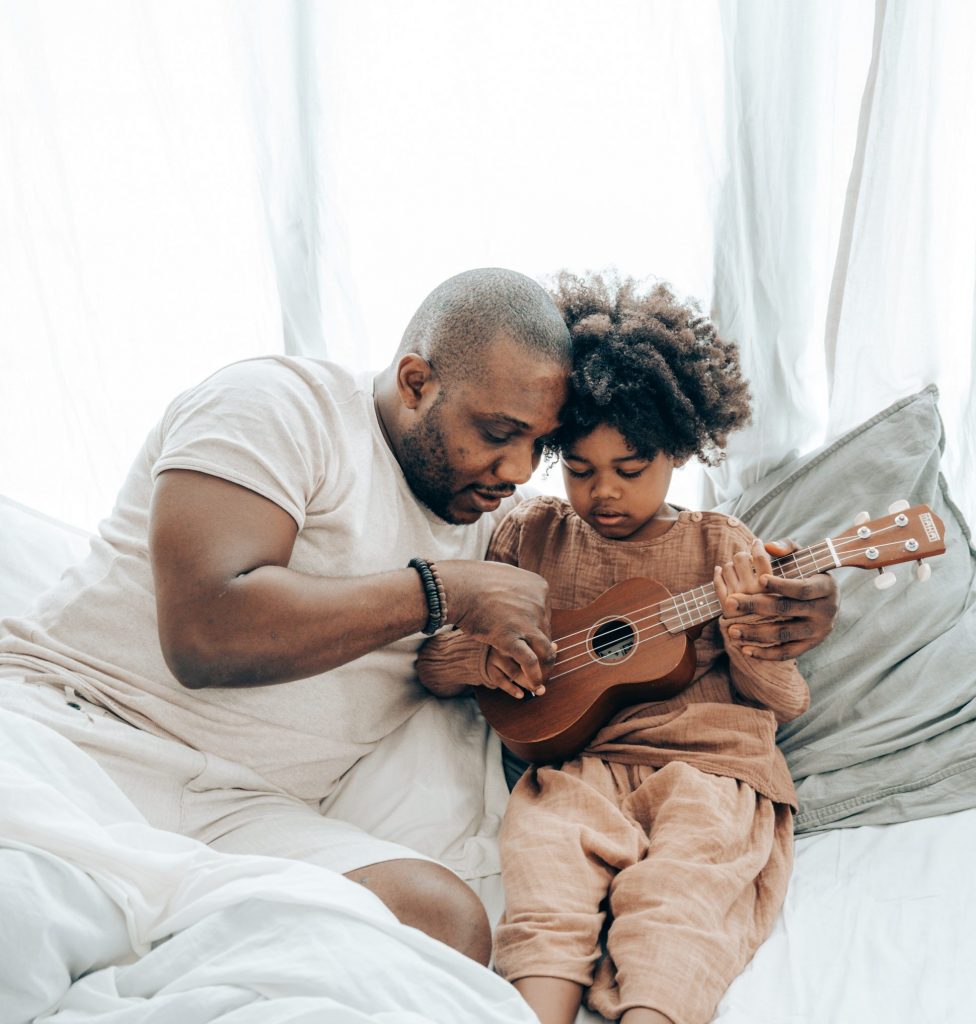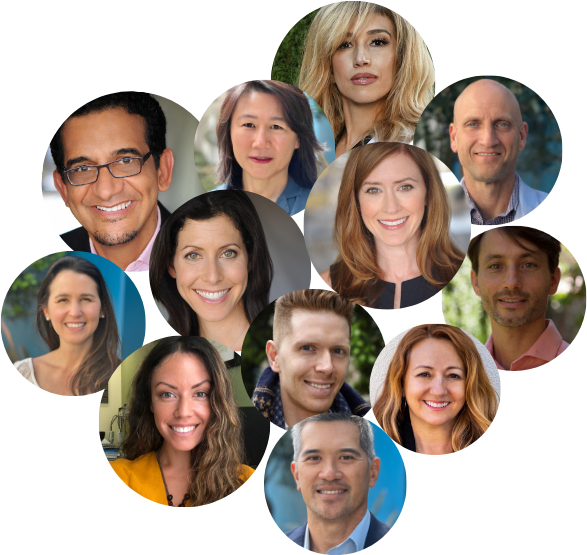Breaking barriers and assumptions of what America says the black man “should” be without a father
As a 27-year-old black man, I, unfortunately, became a statistic when I was under the age of 18.
I was not thrown in jail, or even put in handcuffs or put in the back of a police vehicle. But I was another black teen living in a single-parent home.
According to the U.S. Census Bureau, only 38.7 percent of African-American minors live with both parents. According to their found data, the percentage of white children under 18 who live with both parents almost doubles that of black children. 74.3 percent of all white children below the age of 18 live with both parents.
A young black man without a father figure in his life, according to the world, is doomed to wind up in prison, killed, or leave his children fatherless as their father did to them.
At my age, I am proud to say that I have surpassed the assumptions and most statistics that follow young black men. I was the first in my family to graduate from college with two degrees. I passed the age of 18 without having a child, and I am now married and working in the prestigious area of Silicon Valley.
To most, this may sound like a success, an accomplishment, and a life better than most black men without a father. To me, this journey has been quite the learning experience. A learning experience I wish I walked with my father. Though I am blessed to have a healthy and alive father, I do not have the relationship with him that I wish and dream I had with him growing up and to this day.
This is by no means a definitive guide on how to move through life without a father; though I have done well for myself, sometimes I wish I would be further. Better yet, this is an article that can serve as an example of how not to repeat the history of a missing father, taking accountability and ownership of your own life, and deciding to live with a different perspective no matter the cards you have been dealt in life.
Taking Accountability and Ownership of my Life
My parents officially split up when I was in high school.
I still to this day feel the pain and heartache of seeing my mom hurt and betrayed by my father’s infidelity. Hearing his voice over the phone trying to explain to me that he did no wrong still sends chills down my spine. As a young black teenager, the last thing I needed to hear was that my father cheated on my mother and became yet again a statistic of how the world views black men today.
Though it pained me to see, it lit a fire under me that drove me to be the faithful and loving husband that I am today.
At the age of 16, a kid witnessing a split up inside the home is tough. My heart was filled with anger, bitterness, pain, and anguish. I would see my friends get dropped off by their fathers and be filled with jealously. It was the easiest thing to do. At that time, I didn’t know how to take accountability and ownership of my life.
I would see other kids’ fathers show up to our basketball games or practices to watch them play; I was angry that I did not have that luxury. I was another black kid without a father to show him how to move through life, enjoy high school, and learn to become a young man in the household.
For 18 years, I witnessed my mother raise five boys by herself. None of which have ever been in trouble with the law, raised respectfully, and are now doing very well for themselves. Most importantly, I witnessed my mother embrace her situation. She didn’t make excuses for how she couldn’t do it. She did not blame others for her circumstances or choose to resist her new reality. She made the necessary sacrifices for her sons, and now she is reaping the benefits of her labor and proud of what we’ve become.
Watching my mother do this gave me the belief that I, too, could embrace my situation. Did my dad make horrible mistakes? Yes. Did I wish my childhood turned out differently? Yes. But it didn’t, I had a choice to make, and I decided that I would take accountability and ownership of my life at a young age.
Life is full of challenges, most of which we have no control over. I had to continuously remind myself with positive self-talk that I had no control over my father, not being in my life.
I did have control over my attitude, my response to the situation, and the effort I committed to myself at a young age that I would give to my children in the future.
When faced with a difficult situation, circumstance, or when life throws a curveball at you, exercise your ability and freedom to take accountability and ownership of your life.
Focusing on Rewriting History
Our lives here on earth are a compilation of stories we tell ourselves, and sometimes we make the wrong decision of allowing the world to tell it for us. Stories of what we’ve done, how we’ve done it, how the ones before us did it. And as a black man, I now understand the responsibility of learning to create my own story and not follow the one my father wrote for himself.
It’s easy for people to stay in the lane they are comfortable in and might have been raised in. It’s also easy to fall into the trap of believing “I am a product of my environment.”
I was not in control of my circumstances, but I was in control of my mindset and future committed efforts. I have vowed that I would learn from my father’s mistakes as a husband and a father and choose not to follow in the same footsteps. I had numerous conversations with myself, journal entries, and thoughts of rewriting this history I’ve seen in my family and the lives of other black men; it looked a little something like this.
1. Acknowledging my fathers’ mistakes
Understanding what he did wrong, what he could have done better, and how it affected me and my mother’s life.
2. Asking myself the tough questions
I had to ask myself, how did I want my children raised?
What kind of man did I want my future children to view me as?
Lastly, how did I want to treat my wife?
3. Making a commitment
I committed that I would never treat my wife and children how I witnessed my father treat my mom, brothers, and myself. I refused to make excuses and blame my future actions on my father.
4. Helping others rewrite history in their own lives
I believe it is my responsibility to help others, especially other black men that may have grown up without a father. Helping them understand they do not have to take a page out of their own father’s book; they can create their own.
Learning from mistakes is what life is all about. If you have the opportunity to learn from the mistakes of others before making them yourself, you have struck gold. When we learn from mistakes, whether from ourselves or others, we gain wisdom, and wisdom is what we need to rewrite the history of past mistakes made before us.
A Shift of Perspective
When I was younger, it was easy for me to find countless faults in my father. What he did and what he did not do.
For years I would harp on the fact that my father never taught me how to play basketball. To this day, it is still my favorite sport and a significant part of my life. When I was a kid, I would hear stories about how good he was at basketball. His friends would tell me how good a jump shot he had and his high school career stats. I never got to experience my dad share the tips and tricks that made him a successful player at the time.
Getting him to come to my high school and college games was another fault I held against him. Looking into the bleachers to see only my mother and brothers watching would leave a feeling in my stomach that could not easily be digested.
With all of that being said, I had another decision to face as I was growing up. And I didn’t decide to make it until my junior year of college. I needed a change of perspective. The easy path would have been staying on the current, blaming my father for lack of communication, lack of effort in building a father-and-son relationship, and a lack of presence in my life.
The difficult path I had to commit to taking was changing my perspective on my father and our relationship entirely. Instead of harping on the negatives, I looked back to what I did learn and what he taught me. Like how to choose the best cologne, how to barbeque, and his overall sense of humor. I had to decide to make the most of our relationship and treasure what I did learn because it was something.
I had rid myself of the pride every man has and do the hard work. Instead of hoping and expecting my father to reach out to me first, I simply did it myself. Constant check-ins and visits, letting him know I care about our relationship and would like it to grow further than what it has been in the past. This helped me mature as a man. Pride is the fall of a man. Being vulnerable and willing acted as my remedy. Sometimes, that’s all it is taking the first step in mending a relationship. I am finally starting to see the fruits of that labor.
I am more fortunate than those who have lost their fathers. Being a black man and still having both of my parents alive and healthy is a true blessing. Capturing this new perspective helped me cultivate a glass half full mentality.
When something seemingly doesn’t go as planned or the outcome we want, we are taken down an undiscovered path more often than not. The undiscovered path allows us to gain a new perspective and come out the other side better.
The choice remains ours. Winston Churchill described the outlook of the pessimist and optimist beautifully. “The pessimist sees difficulty in every opportunity. The optimist sees the opportunity in every difficulty.”
I have chosen to embrace the optimistic mindset, and it has helped me overcome the relationship I have with my father and many other trials I have faced in my life.
The Importance of Self-Awareness
I never fully grasped the importance of self-awareness, not until a few years ago. When I look back at my life, most of the mistakes and failures came from me not fully understanding who I was.
My self-awareness started to improve when I really started to take a deep look within myself, not my father but myself. All eyes were on me at this point, I needed to objectively observe my thoughts, emotions, and physical state. Once I started dedicating time to getting to know myself better, whether it was writing, sitting in silence, or observing my actions to situations, I started to gain more self-awareness.
Self-awareness is the conscious knowledge of one’s own character and feelings. Though it sounds simple, many of us go throughout our days with little to no awareness of what we’re doing and why we’re doing it. While that’s not entirely a bad thing to live life without thinking of every little thing we do, it gets dangerous when we aren’t paying attention to our behaviors, and reactions to challenges.
It took me a while to notice my reactions and behaviors when it came to situations revolving around my father. But when I started to truly observe myself and my actions and most importantly becoming honest with myself I started to become more aware of who I was as a man and who I wanted to become.
While there are hundreds of strategies online of how to become more self-aware, the following ways worked best for me.
1. Positive self-talk
Our words are powerful, they can speak life and death. I chose to speak more positivity over myself and my future. I took time every single day to write positive affirmations or even speaking to myself in the mirror, I needed to break down the negative thoughts and beliefs I had of myself.
2. Question yourself
I would sit down quietly somewhere and write out questions for myself to answer.
- What am I trying to achieve?
- What am I doing that is not working?
- Am I focused on things outside of my control?
I challenged myself to come up with well thought out answers and would put them to use.
3. Receive feedback
I needed to get an honest opinion from those I trusted most. I wanted candid, critical, and honest feedback of what areas in my life I needed improvement on and what I was doing well. I’m a huge fan of receiving feedback, no matter positive or negative. It’s my choice how to put it to use in my life.
4. Track progress
Journaling became a powerful tool in my life a few years back. Being able to write out my frustrations, goals, and failures was a soothing exercise for me.
I wrote out key plans, priorities, goals, and my feelings every day. With consistent entries, I noticed a tremendous change in my mindset. I was becoming mentally tougher and speaking more positivity into my life.
Developing self-awareness is a journey, its not easy. But it’s well worth the investment. When you know yourself, you won’t allow anyone or anything to paint your picture or tell your story. To me, it is one of the most powerful tools a person can have.
Where I’m at Today
This experience of being a black man and growing up without a father has played a tremendous role in my life. I wouldn’t be the man I am today without my father. I learned to live with the defeats and victories of our relationship.
Isn’t that what life is about? Learning to roll with the punches, getting knocked down and getting back up, deciding to control what you can control and free yourself of the uncontrollable.
It was okay for me to feel remorse, but it wasn’t okay for me to dwell on the past. I love my father, and if I had the choice to go back and change how things were in the past, I wouldn’t dare. Everything happens for a reason, and trials allow us to learn and grow.
This wisdom I have gained from the situation with my dad is priceless. I have the opportunity to share this wisdom with others that may be going through this same situation. The wisdom to make better choices and to give my future children what I didn’t have growing up. It’s an exciting thought, and a way of living that I will live for the rest of my life, freely sharing the wisdom that has been given to me.
If you are currently facing a similar struggle as I did, try practicing the things I’ve shared today; no matter the adversity, you can make it through.
Young black men, don’t be afraid of seeking help. Don’t be afraid of talking to someone about your feelings and pain. Seeking help is not a weakness, it’s a strength. Seek out, counselors and mentors. Search for support like Therapy For Black Men .
The faster you seek guidance and not bury your pain, the more self-aware you will be.










